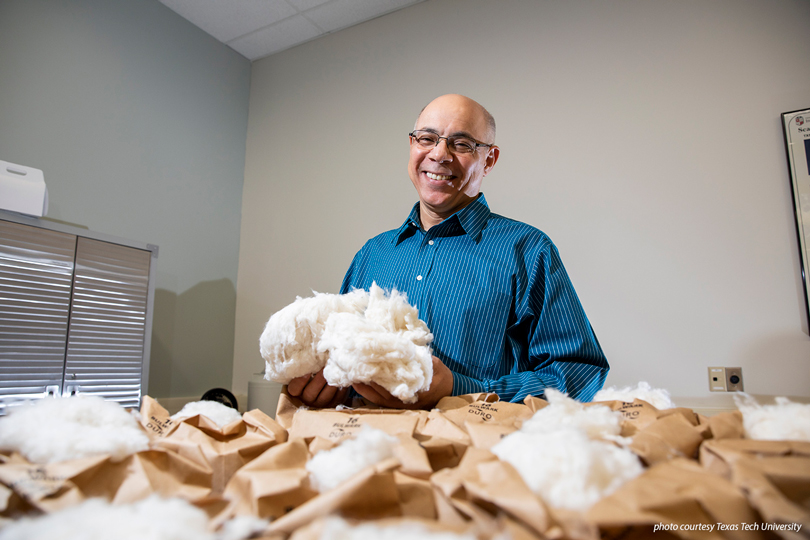By Jennifer Dorsett
Field Editor
Cotton is king in Texas. The fiber is the top cash crop in the Lone Star State, bringing in more than $2.6 billion to the state economy.
But natural disasters and other factors outside farmers’ control can cause significant losses in fiber quality, leaving farmers with few options for the lower-grade harvest.
One researcher at Texas Tech University’s Fiber and Biopolymer Research Institute (FBRI) is trying to change that.
“The idea is to find a new use for low-grade cotton or any recyclable that is 100 percent cotton, and trying to replace, to some extent, petroleum-based products,” FBRI Managing Director Dr. Noureddine Abidi said. “It is still a valuable product that we need to transform into something else.”
Abidi was recently awarded a patent for a process that can break down low-grade cotton into an environmentally-friendly cellulose gel.
The gel can be used to create biodegradable versions of items like plastic trash bags or used in 3D printing. FBRI researchers have used the process to make products such as a protective film and a dye-absorbent material that may someday help clean up water contamination.
“This process, I think, can open new applications for cotton as long as the application can tolerate it, like with high temperatures,” Abidi said. “That is the variable. But as long as you have the gel, you can think of unlimited uses.”
The cellulose gel can withstand temperatures up to 392 degrees Fahrenheit, according to Abidi, so it could even be used to make biodegradable to-go coffee cups.
The process is not quite ready for real-world application, but he hopes to find a company to carry on his research or secure additional funding and continue the research himself.
The hope is that eventually the technology will create new markets for Texas farmers, regardless of cotton grade.
“If they produce a good premium cotton, then anybody can buy it,” Abidi said. “But we don’t always know if that will happen. If we can develop products from this, then there will be a company that takes the remaining cotton, which is beneficial for all farmers.”


[…] For more info:- https://texasfarmbureau.org/texas-tech-researcher-patents-new-use-for-low-grade-cotton/ […]